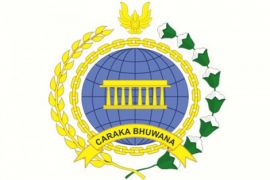Asif Ali Zardari was spending a second day at the American Hospital while facing a major scandal over to what extent he was involved in attempts to seek US help to limit the power of Pakistan`s military.
The deeply unpopular 56-year-old president has a long-standing heart condition and his admittance to hospital sparked fevered speculation in the media and on microblogging site Twitter that he may step down.
As a figurehead president in a country where power is deemed to lie with the military, he is away as Pakistan battles perhaps its worst crisis in US relations after NATO air strikes killed 24 Pakistani soldiers on November 26.
Prime Minister Yousuf Raza Gilani is responsible for the day to day running of the fragile civilian coalition government, which is understood to have tense relations with the military, which effectively controls foreign policy.
"The president is stable, comfortable and is resting," the presidential palace said in a statement
"Initial tests and investigations have been within normal range while further tests will be carried out," the brief statement said.
Zardari was moved from an intensive care unit to a normal hospital room on Thursday evening, presidential spokesman Farhatullah Babar told AFP.
Aides have so far been unable to say when he will return home, after one member of the cabinet initially said he would go back to Islamabad on Thursday.
"It depends on the doctors, when he will be discharged. They will tell after receiving results of some more tests," Babar said earlier.
Zardari has a long-standing heart condition and previously had been fitted with stents. He reportedly suffered a minor heart attack six years ago.
An article published on the website of the US magazine Foreign Policy sparked fevered speculation Wednesday that Zardari was on his way out, forcing both Pakistan`s presidency and the US State Department to dismiss the rumours.
"Our belief is that it`s completely health-related," State Department spokesman Mark Toner told reporters.
Babar said the reports were "speculative, imaginary and untrue".
The Foreign Policy article quoted an unnamed former US government official as saying Zardari was "incoherent" when he spoke to President Barack Obama by telephone over the weekend and that he was feeling under increased pressure.
"The noose was getting tighter -- it was only a matter of time," the former official said, in what Foreign Policy called "growing expectation inside the US government that Zardari may be on the way out".
Mustafa Khokhar, an adviser to the prime minister on human rights, told AFP that Zardari suffered a "minor heart attack" and underwent an angioplasty.
Zardari took office after the centre-left Pakistan People`s Party (PPP) won general elections in February 2008, three months after his wife, former prime minister Benazir Bhutto, was assassinated.
If he remains in office until 2013 when his mandate ends and elections are held it would be the first democratic transition of power in Pakistan, where the military has staged four coups and ruled for more than half the country`s existence.
Although Zardari has survived numerous crises and calls for his
resignation, he is under huge pressure over a memo allegedly written by close aide Husain Haqqani asking for American assistance in curbing the powerful military. (*)
Editor: Kunto Wibisono
Copyright © ANTARA 2011











